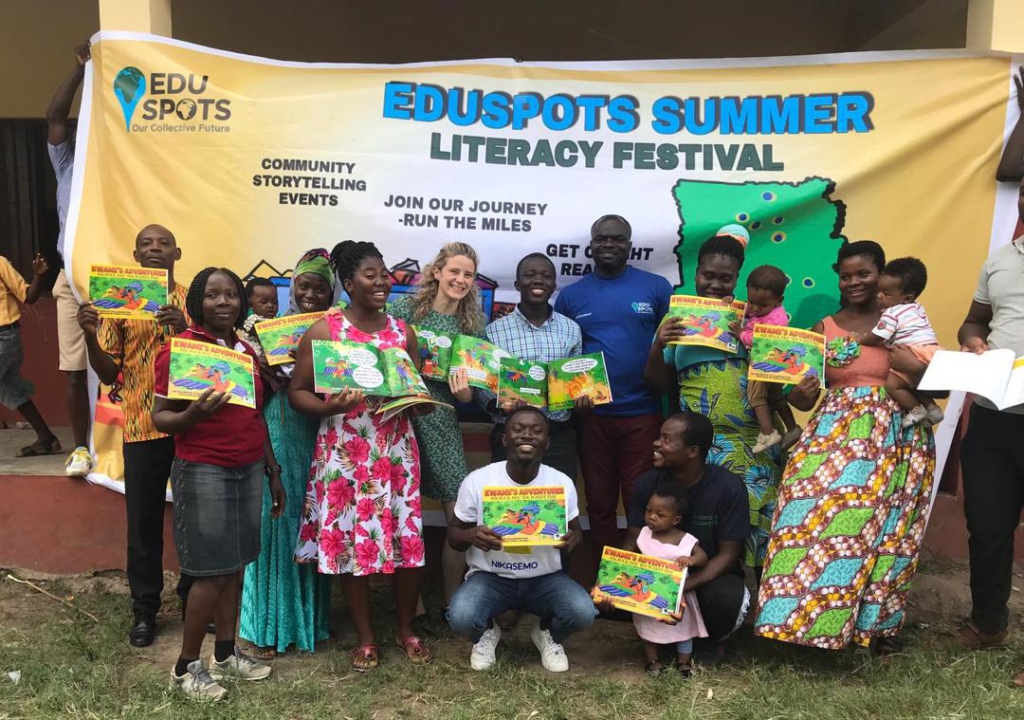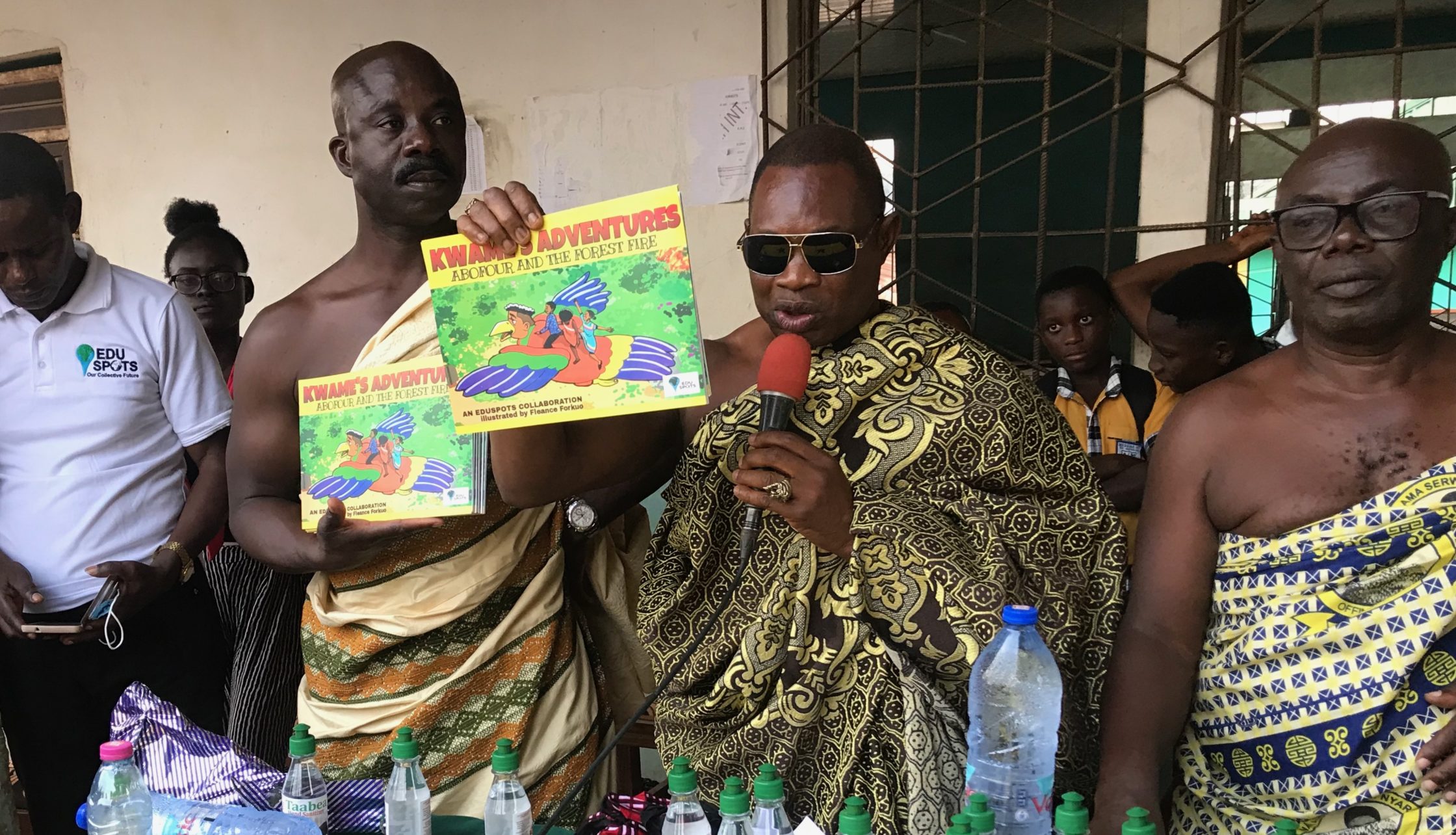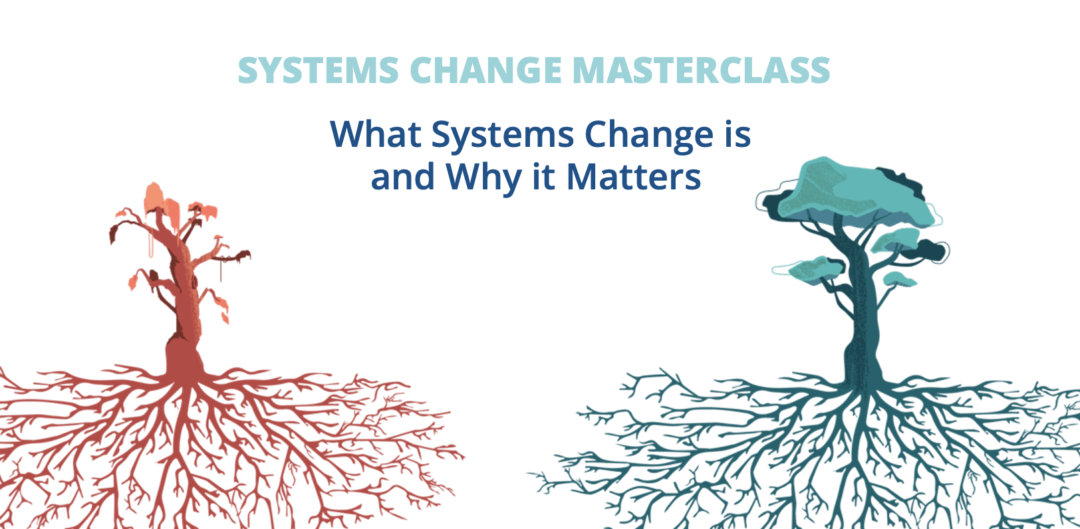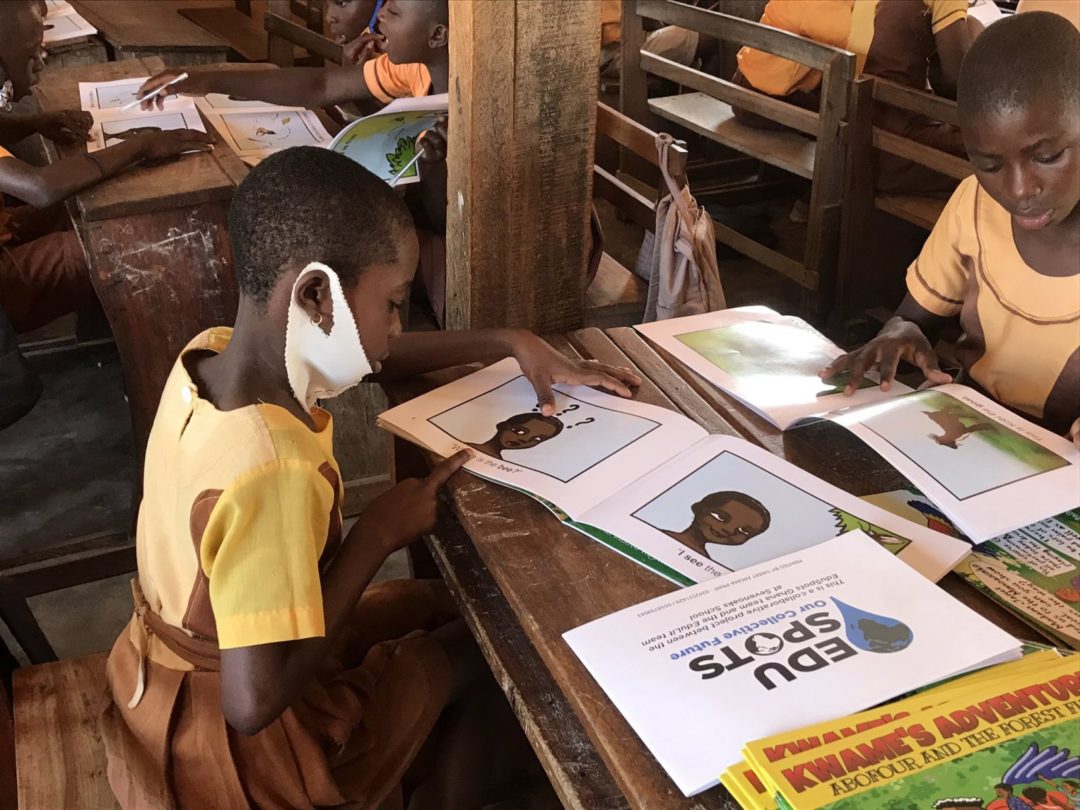I am writing this on Ghana Independence Day – and officially, in this moment of writing, launching the EduSpots’ Year of African books.
This final blog post in this series draws the analysis from the previous posts exploring the elements of language, epistemology and identity together in consideration of book supply in Ghana, to feed into EduSpots’ organisational strategy for 2022 which has been co-created with volunteers and staff across our wide network.
These conclusions have been drawn through research and reading relating to a wide range of Ghanaian and international scholars, educators and community members. Note also that when I refer to ‘we’ in decision-making, this is the voice of our staff and volunteer team in Ghana, as much as my own voice and that of international volunteers and staff working for EduSpots.
Conclusions from analysis
Considering questions in relation to language, we can see that English has been Ghana’s national language since independence with success in the exam system and many areas of employment dependent in part on a strong command of the English language. Therefore, whilst we also hope to start to supply books in local languages where possible, continuing to offer books in English is the request of the communities we work with.
However, it is important to note the difference between books in English printed and written by Ghanaians, as compared to western printed books. The vocabulary and images used by Ghanaian authors and illustrators will be those that readers are more easily able to understand and relate to. This can lead to a higher engagement in education and learning more widely, as research studies I offered in previous posts have shown.
In relation to knowledge, there is a clear ‘epistemic injustice’ that is taking place – to provide books that only propagate a western worldview, is reproducing power imbalances and reducing capabilities of community members. This is partly due to the greater interest children have in books that reflect their own worlds, and also the increased knowledge that they want to gain of their own local and national history and identity. We have always supplied some African texts with the limited funds that we have, but it is clear that we need to go a step further in ensuring this is a clear priority for fundraising.
Considering identity, it is clear that there are significant harms associated with children and adults being influenced by role models and lifestyles that do not relate to their own lives and contexts. Further than this, the lingering sense of the superiority of western life, that exists in some areas of rural Ghana, can leave young learners feeling inferior or aspiring to a type of life that is not their own, or superior to their own. Fiction books such as Nervous Conditions by Dangarembga bring to life the psychological trauma that can be caused by the imposition of foreign knowledge and value systems with works by Fanon and Friere exploring this in further depth.
Western books are also more obviously donated by western charities, making readers always aware that their education is being supported by people in the west, which can reinforce notions of inferiority or a sense of being indebted, which does not correlate to the reality of the foundational reasons for wealth differences.
However, this does not mean that having access to western fiction and non-fiction books doesn’t have any value, with there being clear benefits from international understanding and many universal forms of knowledge; the issue here is one of libraries being overwhelmed by western books, which has ultimately be caused by the difference in supply available, rather than a desire to impose western literature and ideas.
Considering of these three areas, alongside significant research at the community level, has fed into the decisions below:
Organisational decision-making
1. Our model
We have worked collaboratively across our volunteer network to create a model for how we believe our Spots can function most effectively – we call this the ‘Dream Spot’ model. We need to consider the provision of western and Ghanaian literacy resources in the context of our overall model and theory of change.
It is first important to note that in our model it is the library committee and volunteers who are ultimately given the decision on which books and wider resources that they would like to have. When our Ghanaian team do a book delivery, we have always enabled communities to choose between different types of books that we have available.
However, research across the network has led us to incorporate within our wider organisational strategy an aim to ensure that every Spot has a clear African fiction, non-fiction and text book section alongside other resources that have relevance to the community.
We are engaging local communities in moving towards this resource aim through supporting them in local fundraising and book collections, rather than depending on EduSpots central fundraising to provide these books for them. It has been exciting to see local fundraising develop at a considerable rate following training in this area incorporated in the CLEd (Community Leadership in Education) programme.
More information on this model and its fit with the CLEd programme, can be found here.
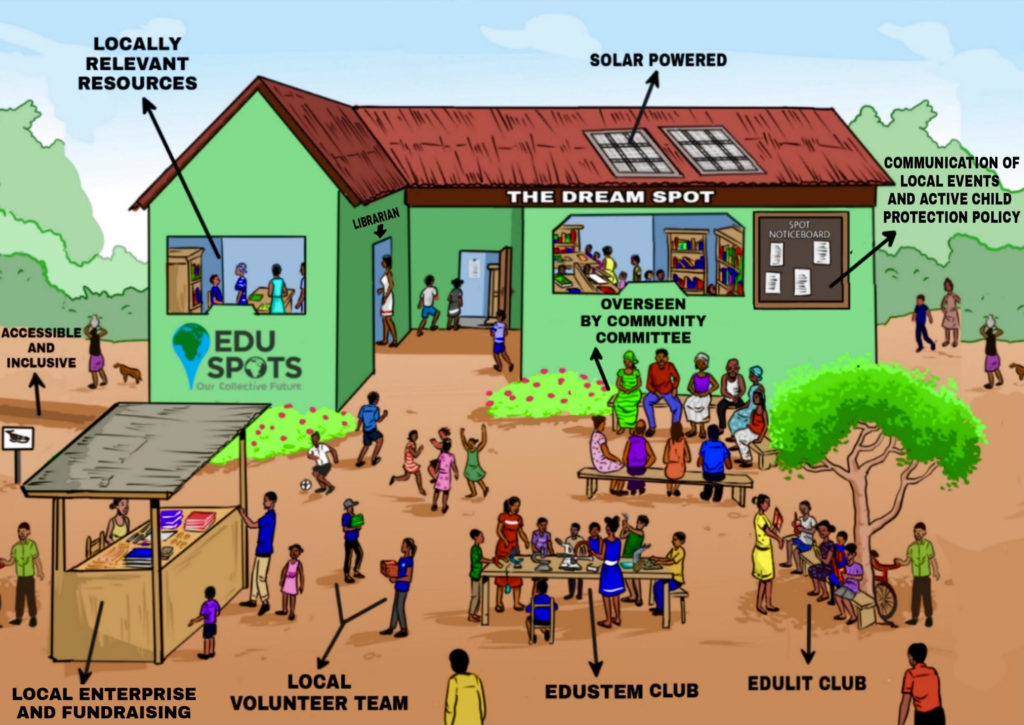
2. Launch of a Year of African Books
In order to achieve our aim of enabling every Spot to have a significant African fiction and non-fiction section (which we envisage could cost £20,000, depending on the number of books on offer), we have launched ‘a Year of African Books’, following the Ghana Library Authority’s launch of a Year of Books as their books for the year. Donations to this cause can be made here.
Through launching this as a fundraising theme, we hope to not only create further funding for purchasing African books in Ghana, and therefore supporting local authors and publishers, but we also aim to raise wider awareness of the importance of representation in literature, highlighting the value of students of all ages having books that mirror their worlds.
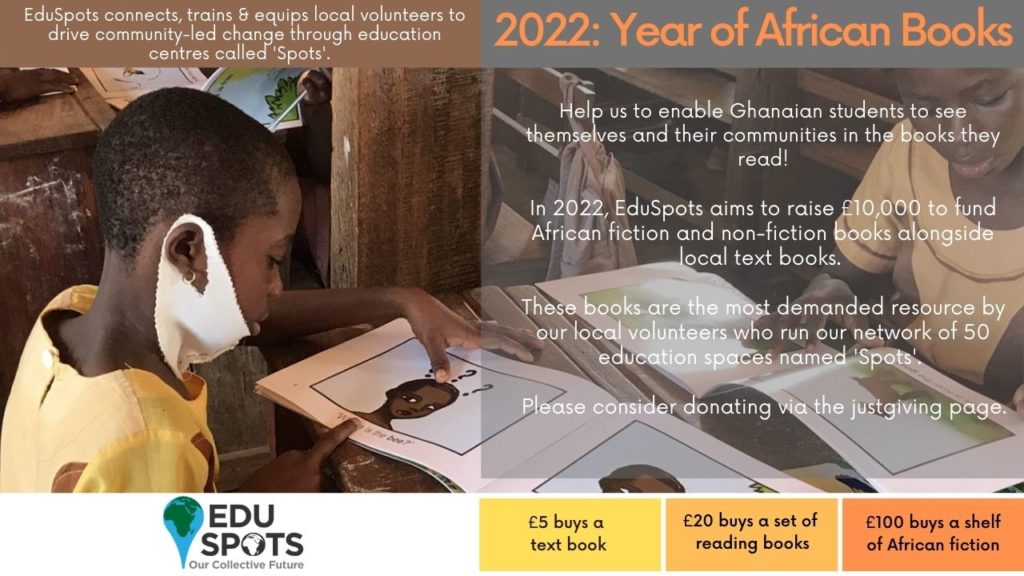
Linked to this aim, many schools have now aimed to ensure that books in their libraries and reading lists reflect a more diverse range of world views.
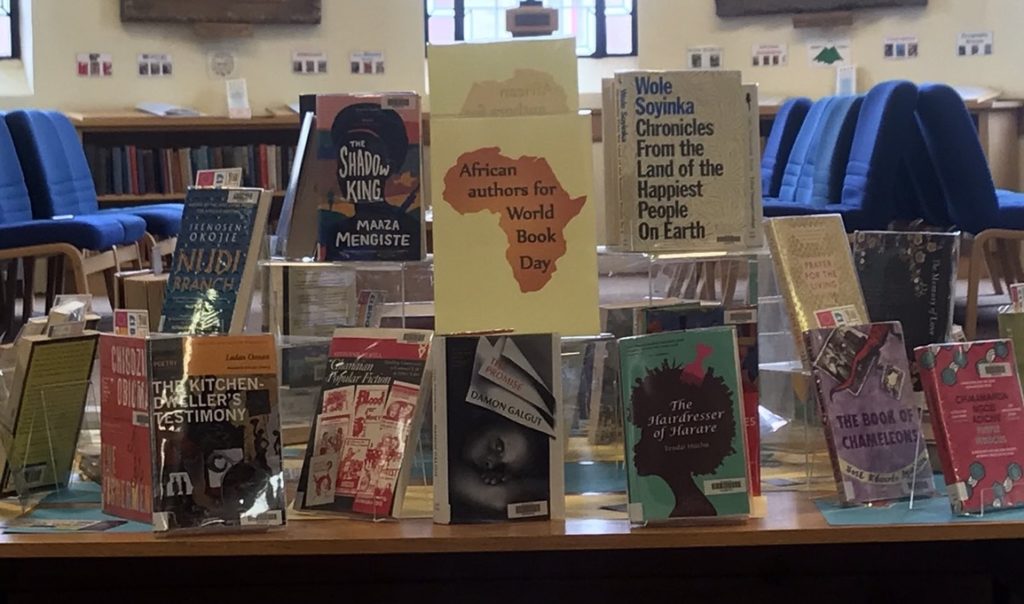
3. Book collections
As part of the ‘Year of African Books’ we have made the decision to postpone our UK annual book collection in 2022, despite being confident that we can fill a shipping container with high quality western books with support from our wider network of UK schools.
The reason for this is to instead aim to use the equivalent funding required to transport the books (the shipping container and port clearance costs add up to nearly £5000) to fund African books, purchased in Ghana. This will also support local authors and publishers, as well enable us to supply our communities with the books that they most often request.
It costs us about 15p (roughly 1 Cedi) to acquire one western book, whereas each African book will likely cost 15 times that amount. However, given that most of our Spots already have some western books, we believe that quality of literary engagement is more important than simply lining shelves with a quantity of books.
We have also decided to continue our book collections within Ghana, supporting communities with leading their own collections, as well as launching a new EduSpots university ambassador programme, bringing students across 5 Ghanaian universities to support elements of EduSpots’ work, and building their leadership skills in the process.
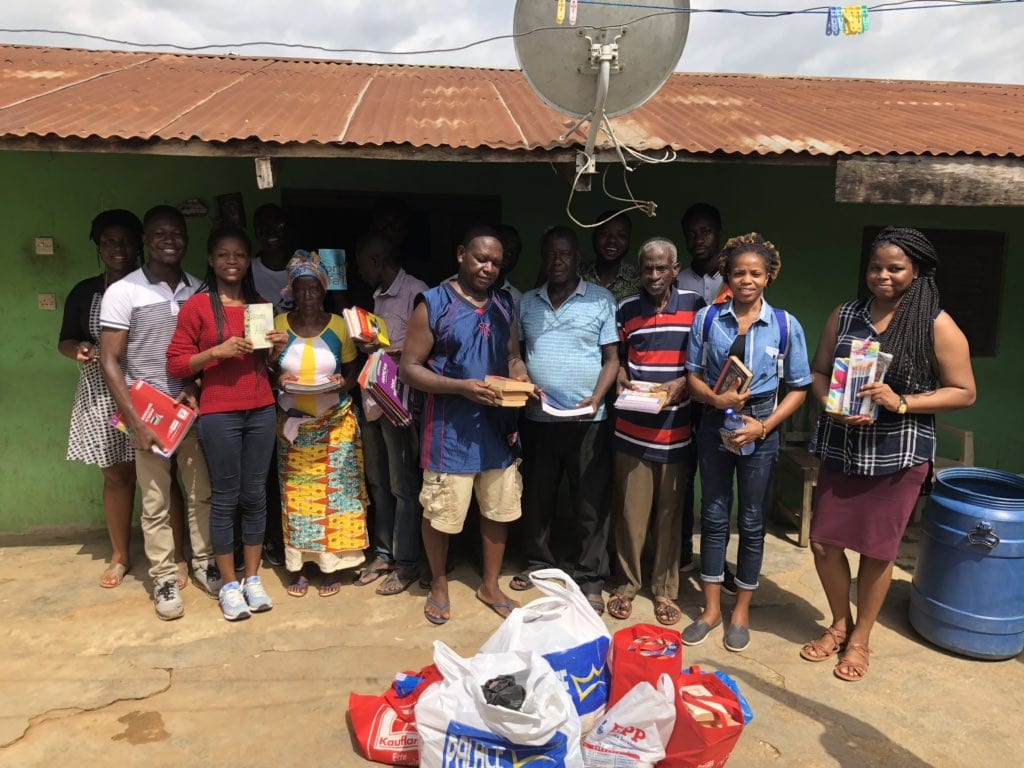
4. Kwame’s Adventures
‘If we want to encourage pupils to read then we need to give them books that mirror their world and capture their interest, this is what the book does and I believe more of such initiatives need spreading.” (Project Leader, Kalpohin, Northern Ghana)
The key aim of this project was to enable Ghanaian children to see their own communities represented in fiction, creating a series of books with characters and events that they could relate, hoping that this will increase their interest in reading more widely.
The books were created collaboratively with communities, and a Ghanaian illustrator, Fleance Forkuo, who offered the illustrations, which were based on photographs taken of the communities and the local volunteers. We were then able to print thousands of copies of these books at low cost. This has also allowed us to create literacy challenges relating to the books across through our EduLit programme which works across our Spot network.
“I love the book because it talks about my community and this is the first time I am reading a storybook that mentions my community’s name.” (Child in Tease)
“As someone born and raised in the UK, the abundance of relatable literacy resources had never been a privilege I had actively recognised, however now I am able to recognise how literacy resources are dominated by western culture and it motivates me further to look into diversifying specifically children’s literature. (Student, UK)
“ When the pupils were told that the story was staged at Tease, their own community, the excitement and readiness of the pupils to read Kwame‘s adventures was amazing! Teachers too were eager to read and were surprised and happy to see Miss Alice feature in the story”. (Teacher in Tease)
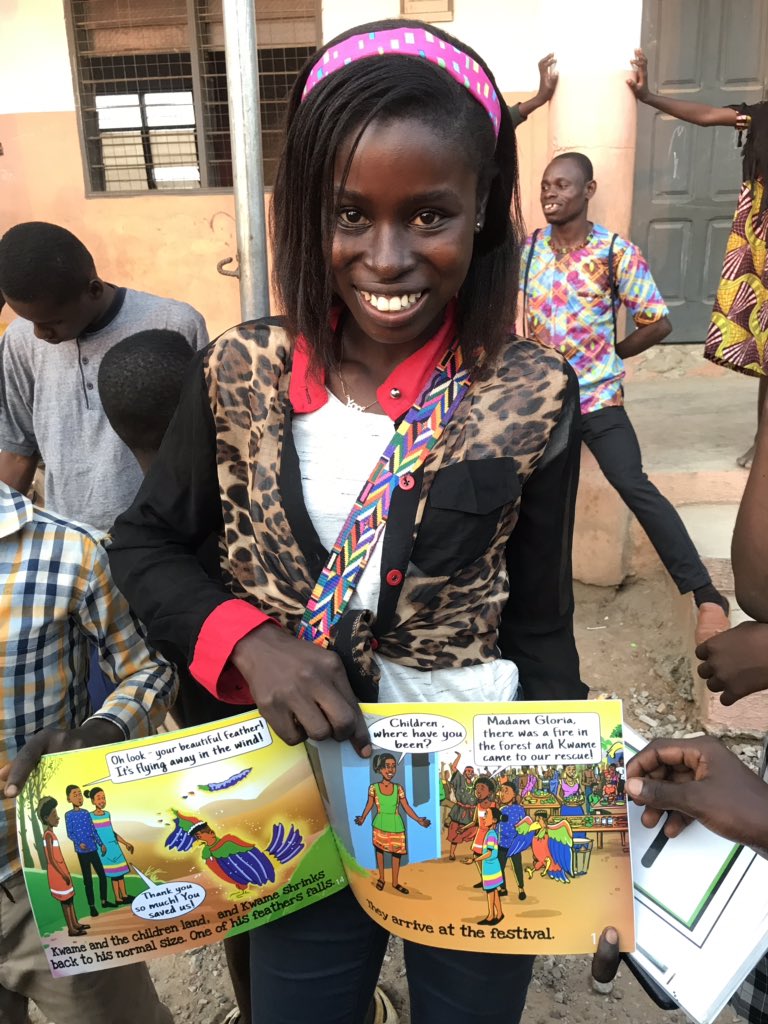
Involving the community leaders in the book launch was also vital, and observations revealed that this lead to an interest in reading across the community.
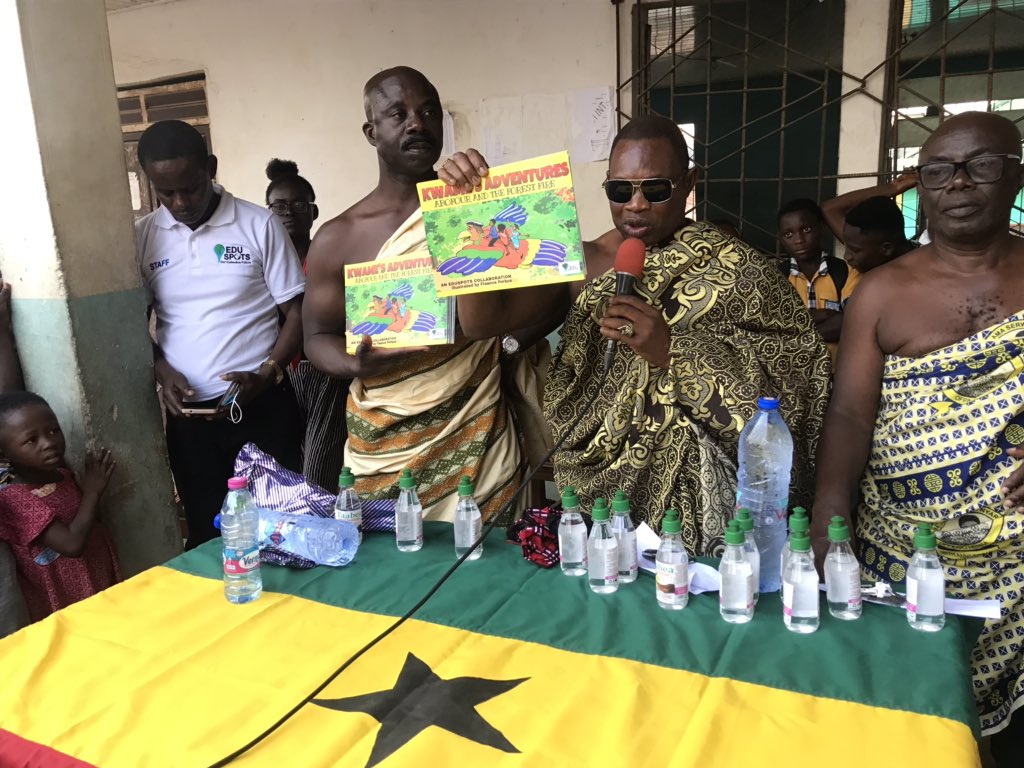
Further to this, students in the UK from a range of international backgrounds, created Ghana-specific phonics resources to replace the western dominated resources that were being used across Ghana. They worked with Ghanaian students and volunteers to find the words and images that they wanted to see in their phonics kits. This again worked to enable students to learn about representation through being engaged in an active process of change.

5. Monthly author talks
We have also launched a series of monthly talks from authors ranging from African fiction authors, to authors who write on topics relating to our work, spanning across development practice, citizenship and social leadership.
Our next session is with Jon Alexander on the 16th March. You can sign-up for this event here, with £5 requested as a donation towards African fiction books. A session in May is planned with Christy Lefteri, Author of the Beekeeper of Aleppo, and we’d welcome any recommendations of African authors who might be keen to lead a session.
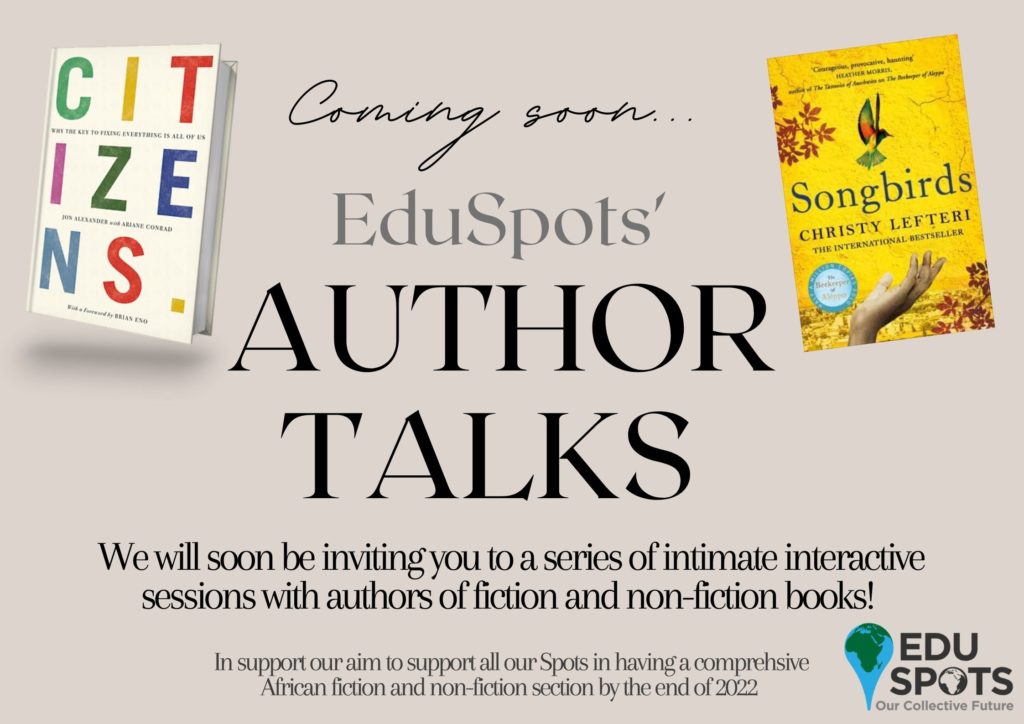
How can you get involved?
There are many ways that you can help. Firstly, you can donate to our African book appeal! It costs roughly £2 to buy one African fiction book in Ghana. This is the page for general donations, which you can also help us by sharing: https://www.justgiving.com/fundraising/eduspotsafricanbooks
Secondly, you can spread the word about these issues, and if you are creating resources of any kind, recognise that representation can have a significant wider impact on many diverse groups of people – with the scope of this discussion stretching far from a focus on African versus western fiction to championing further consideration given to educational resources to mirror the lives of people across the world.
Thirdly, do get involved with our events such as our monthly author talks, annual dinner and summer fundraising challenge. You can find out more about these by joining our mailing list here. We also have a range of volunteer positions available – do get in touch.
Lastly, you can tell us how to do what we are doing better – we are open to all ideas! Do reach out to me on cdavison@eduspots.org. We are particularly keen to hear from African authors, publishers and organisations and individuals who might be able to offer sponsorship for our work in this area.

